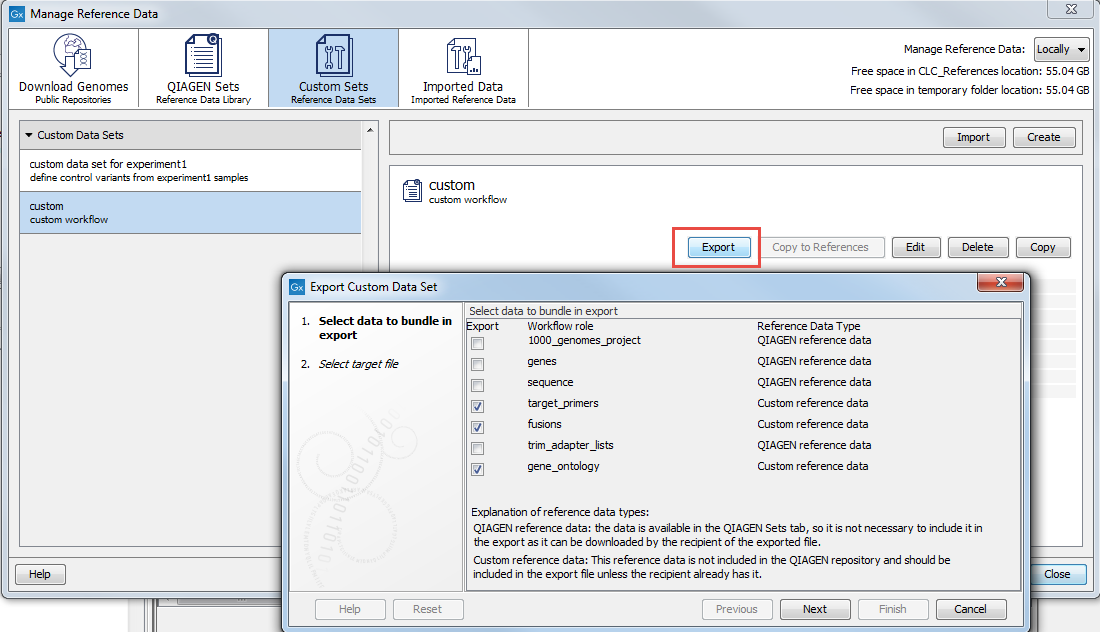Export a Custom Data Set
It is possible to export a Custom Set (figure 9.14) to a .cpc file. This set can be imported using any CLC Genomics Workbench, run with a license or in Viewing Mode.

Figure 9.14: Exporting a custom data set from the Custom Sets tab. In this example, we are exporting 7 roles, as well as data for three of them.
Exporting a Custom Set exports the roles included in the set. The data elements associated with each role can be exported too, but whether this is necessary depends "Reference Data Type", as described below.
On the left is an Export column. When a check box in this column is unchecked, only the role is exported. If the box is checked, the data element associated with that role will also be exported.
A "Reference Data Type" is listed in the Export Custom Data Set dialog. The type has the following implications for the Export:
- QIAGEN reference data: Data available under the QIAGEN Sets tab. It is not necessary to include these elements in the export file. The recipient of the Custom Set can download the relevant data via the Reference Data Manager of their Workbench.
- Custom reference data: Data in the CLC_References location that is not present in the QIAGEN repository. If this Custom Set will be shared with others, you may need to include the data in the export file unless you know they already have this data in the expected location.
- Not reference data: Data not being managed by the Reference Data Manager, i.e. not located under the CLC_References area. Such data cannot be included in the exported set. To remedy this, exit the Export dialog, import the data element into the CLC_References area using the "Copy to References" button, and start the export again.
By exporting only roles and any custom data elements, the size of exported files can be kept to a minimum.
